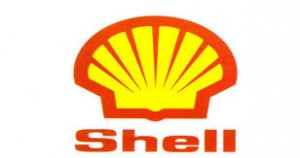

Shell is using JTF to frce us to sign oil spill report says Aghoro community in Bayelsa
FeaturedNigeria September 18, 2018 Arodiegwu Eziukwu

. Shell, Host Community bickering on impact of Aghoro spill stalls JIV report
 Members of Aghoro, a coastal settlement along Ramos River in the Ekeremor Local Government Area of Bayelsa State has raised an alarm over the intimidation f its community leaders involved in the investigation of an oil spill that occurred in the area.
Members of Aghoro, a coastal settlement along Ramos River in the Ekeremor Local Government Area of Bayelsa State has raised an alarm over the intimidation f its community leaders involved in the investigation of an oil spill that occurred in the area.
The Joint Task Force (JTF) in the Niger Delta and Shell Petroleum Development Company (SPDC), however on Monday denied allegations of coercing leadership of Aghoro 1 community to sign a report.
A disagreement in the areas impacted by an oil leak on the Trans Ramos Pipeline within Shell’s oilfield at Aghoro communities in Bayelsa has stalled release of Joint Investigation Visit (JIV) report of the spill incident.
The community leaders who participated in the JIV to determine the cause of the spill subsequently declined to sign the JIV report.
The refusal was due to wide disparity between the impacted areas claimed by SPDC and the community.
Mr Victor Akamu, Chairman, Community Development Committee of Aghoro 1 alleged that SPDC in connivance with the JTF resorted to force and intimidation.
Akamu said on Monday that JTF summoned the community leadership to Yenagoa on August 23 to force them to sign the JIV report to no avail..
He said the team from Aghoro were labelled pipeline vandals and were profiled into the database of the security agency.
“We were taken to a room where detailed profiles of us were taken including our finger prints, biometric details and our photographs.
“We were temporarily held down for almost three hours profiling before we were eventually asked to go.
“I wanted to ask is it part of JTF’s job to force a community to sign a JIV Report?
“Shell should stop using JTF to intimidate our community, for the past 20 years, there is no history of pipeline vandalism, this leak was due to a ruptured pipeline due to corrosion yet they call us vandals, it is unacceptable,” Akamu said. .
In a reaction to the allegation of resorting to coercion, Mr Bamidele Odugbesan, Media Relations Manager, SPDC denied use of force to compel its host communities to sign the JIV Report.
“Yes, there issues with the JIV report, the representative of Aghoro 1 community did not agree with a portion of the JIV report but we have not used force, SPDC does not coerce parties to sign JIV Reports,” Odugbesan said.
Rear Admiral Apochi Suleiman, Commander of the JTF dismissed allegations of intimidation adding that the military waded into the crisis to encourage both parties to adopt dialogue to resolve their differences to avert breach of peace.
“We conduct our duties in compliance to our rules of engagement; we invited the parties to mediate and encourage them to dialogue and use the established channels of resolving conflicts.
“I told them to resolve their differences on the negotiating table so that the operation is not disrupted, our mandate is to safeguard oil facilities and we do not want the disagreement to degenerate further.
“We got reports that some persons were disrupting ongoing repairs of the ruptured pipelines and that was why some people were profiled, I was emphatic that we cannot tolerate anyone taking the law into his hands,” Suleiman said/
Checks show that the leak , which occurred on May 17, 2018 discharged 1,114 barrels of crude oil into the environment and polluted the Ramos River, farmlands and surroundings.
According to the draft JIV report, the 1,114 barrels of crude impacted a total land area of 113.3 hectares in Aghoro 1 while the community claim that the impacted area was 1825 hectares.
A disagreement in the areas impacted by an oil leak on Trans Ramos Pipeline within Shell’s oilfield at Aghoro communities in Bayelsa has stalled a joint investigation of the spill incident.
The leak , which occurred on May 17, 2018 discharged a yet to be ascertained volume of crude oil into the environment and polluted the river, farmlands and surroundings.
The Shell Petroleum Development Company (SPDC) said a Joint Investigative Visit (JIV) to ascertain the cause of the oil leak has been concluded but the report was yet to be signed by all the parties.
Mr Bamidele Odugbesan, Media Relations Manager at SPDC had said that the joint investigation was conducted by the oil firm, representatives of the host community, government and regulatory agencies.
Odugbesan however said that the report of the JIV which commenced early in July 2018 was ready and awaiting signing off by the communities but declined to give reasons for the delays in releasing the JIV report.
The JIV report is expected to unravel the cause of the spill, volume of oil discharged and the area adversely impacted, and volume of oil recovered in the spill incident as well as serve as a basis to determine compensation.
It was gathered that SPDC and representatives of the host communities had a sharp disagreement on the size of areas affected by the oil spill and hence refused to sign the report ad disrupted ongoing clean up of the site.
Mr Sunday Benjamin, Chairman, Community Development Committee, Aghoro 1 who participated in the JIV said the communities had argued that the oil spread to wider areas and affected more places than the JIV covered.
“The cause of the stalemate is that Shell refused to accommodate satellite communities, they did not allow the JIV to be extensive, they excluded the satellite communities and fishing settlements.
“They only captured Aghoro 1 and 2, leaving other fishing settlements impacted by the crude oil that leaked into the waters; they recorded 33 acres for Aghoro 1 and 113 acres for Aghoro 2.
“We eventually signed our portion because we did not want delays in the process and our land affected was not much but Aghoro 2 people refused to sign that is why the JIV report is delayed.
“Everyone agreed that the spill was traced to ruptured pipeline on three points due to corrosion on the Trans Ramos Pipeline,” Benjamin said.
Reacting to the development Dr Peter Idabor, Director-General, National Oil Spills Detection and Response Agency (NOSDRA) told NAN in a telephone interview that the JIV is ‘inconclusive’ following the disagreements.
“ From the feedback from our officer in Yenagoa, the JIV is inconclusive’” Idabor said






